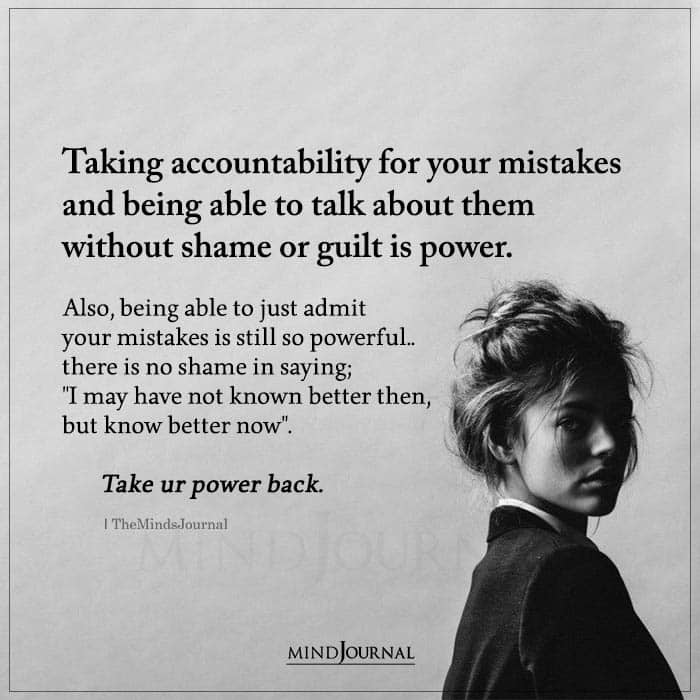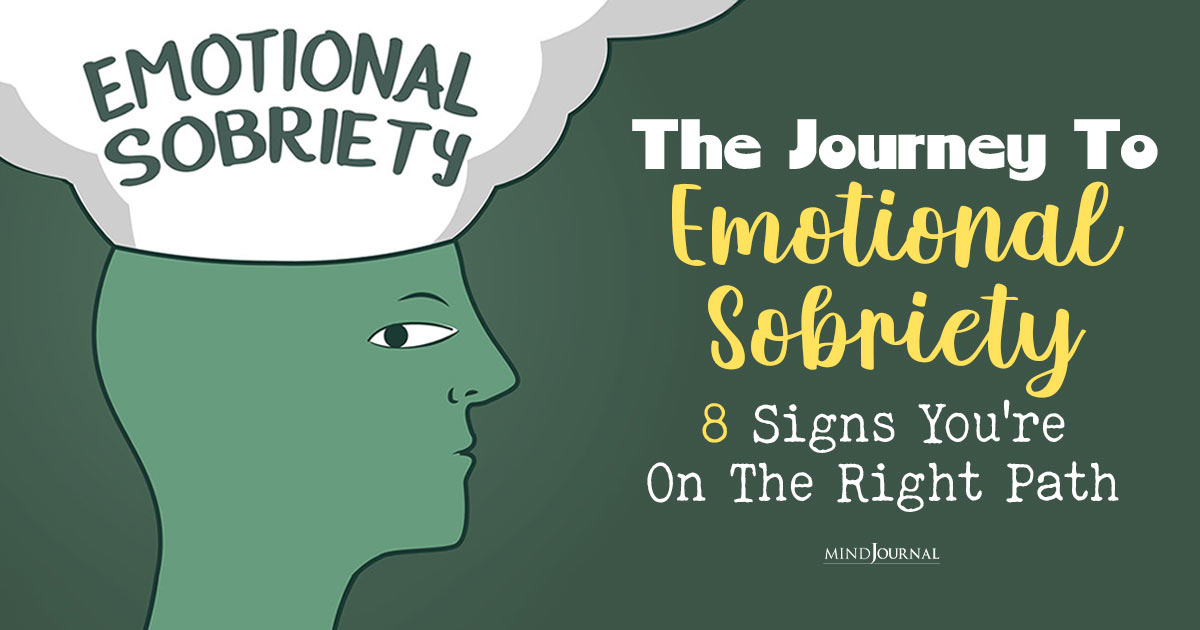Emotional sobriety is a concept that goes beyond just physical and substance-related sobriety. It’s about achieving a more holistic and deeper sense of well-being and balance in our lives.
When you’re emotionally sober, you’re better able to manage your feelings, maintain healthy relationships, and live with a greater sense of fulfillment and happiness.
In this article, we are going to explore what is emotional sobriety and the signs of emotional sobriety. Whether you are in recovery or simply looking to improve your emotional health, understanding these signs can really help you live a more centered and authentic life.
First let’s start with understanding what is emotional sobriety.
Related: Mature People: 7 Defining Signs Of Maturity
What Is Emotional Sobriety?
Emotional sobriety is the state of being in control of your emotions, rather than being controlled by them. Its about being more self-aware, emotionally mature and having healthier coping mechanisms to deal with the difficult times in your life.
Emotionally sober people are able to experience and express their feelings in a balanced way, without becoming overwhelmed or reacting impulsively.
Emotional sobriety can actually help you a lot when it comes to maintaining healthier relationships, making mature decisions and generally living with a greater sense of fulfillment and inner peace.
Achieving emotional sobriety takes consistent and honest work, and it’s profound aspect of overall wellness and personal growth.

Now that we have talked about what is emotional sobriety, let’s talk about the signs of emotional sobriety.
8 Signs Of Emotional Sobriety
1. You are better able to bounce back from tough times.
Emotional sobriety is all about handling life’s ups and downs without losing your cool. When things go wrong, you don’t sit around crying over it; instead you face the problem with your head held high, learn from it and keep moving forward.
It’s not about pretending everything’s fine, but about dealing with your emotions in a healthier manner. You stay positive focusing on what you can do to make things better. This makes you stronger and ready to tackle whatever life throws at you.
2. You know how to keep your cool.
One of the major signs of emotional sobriety is this. You never let your emotions control your actions, and that’s why you are really good at managing your feelings.
When something triggers you, you know exactly the reason behind it, and this awareness helps you stay calm, and you respond thoughtfully instead of flying off the handle.
Staying balanced emotionally means you can handle stress without freaking out, making life a lot more chill and manageable.
3. You know how to be accountable for your actions.
If you are emotionally sober, you are capable enough to own up to your actions and feelings. You are aware that your behavior affects others and that’s why you strive to act with kindness and integrity.
Taking responsibility means acknowledging mistakes, making amends and learning from them. You don’t blame others for your situation; instead you focus on what you can control and improve.
When you know how to be accountable for your actions, it builds self-respect and trust with others.

4. You know the art of accepting and letting go.
A very important part of emotional sobriety is knowing when to let go of something or someone, through self-acceptance. You know that in life, you can change some things and some you cannot, no matter how hard you try.
Having a mindset like this reduces your stress and frustration, helping you move forward without getting bogged down by the past. Letting go of grudges and unrealistic expectations frees you to enjoy the present.
Acceptance brings inner peace and resilience, helping you handle life’s uncertainties with grace.
Related: Emotional Evolution: 35 Signs You’re Becoming More Mature
5. You have deep and meaningful relationships with people.
Having deep, rich connections with people is one of the biggest signs of emotional sobriety. It means you have relationships that are more than small talk and superficial conversations; these connections are built on mutual respect, honesty, trust and genuine understanding.
These sort of relationships foster a sense of belonging and support, making you feel valued and understood. You feel happier and safe because you know they will be there to provide comfort during the bad times and share joy during the good ones.
6. You know how to deal with your emotions without feeling the need to supress them.
Being able to face your emotions without pushing them down is one of the best things about emotional sobriety.
When you are able to acknowledge and experience your feelings without feeling the need to ignore them, it allows you to process your emotions properly and prevents them from building up and causing stress.
By addressing your emotions head-on, you understand yourself better and can navigate life’s challenges more effectively, leading to greater emotional balance and resilience.
7. You live your life with a sense of purpose.
What is emotional sobriety? Emotional sobriety means you live with clear values and goals; your actions and decisions are guided by what matters most to you. You have relationships with people with similar values, beliefs and goals.
Having a sense of purpose gives you direction and motivation, helping you stay focused even when things are tough. Living intentionally brings satisfaction, contentment, boosting your emotional health.

8. You are an emotionally flexible person.
Emotional flexibility means you can adapt to changes without getting stuck in one emotional state. If something goes wrong, you adjust your approach and thinking and keep moving.
This mindset helps you deal with your negative emotions and enjoy positive experiences fully. By staying open to change and being willing to change your opinions and responses, you keep your life more balanced and stable, which is crucial for your overall well-being.
Related: Unlocking The Inner Journey: 6 Signs You’re Experiencing Spiritual Maturity
When you learn the art of being emotionally sober, you crack the code to living a better, happier and healthier life. Emotional sobriety is an underrated skill to have, and once you master it, you become the master of your own life.
Do you relate to these signs of emotional sobriety? How many of these signs have you noticed in yourself? Let us know your thoughts in the comments down below!










Leave a Reply